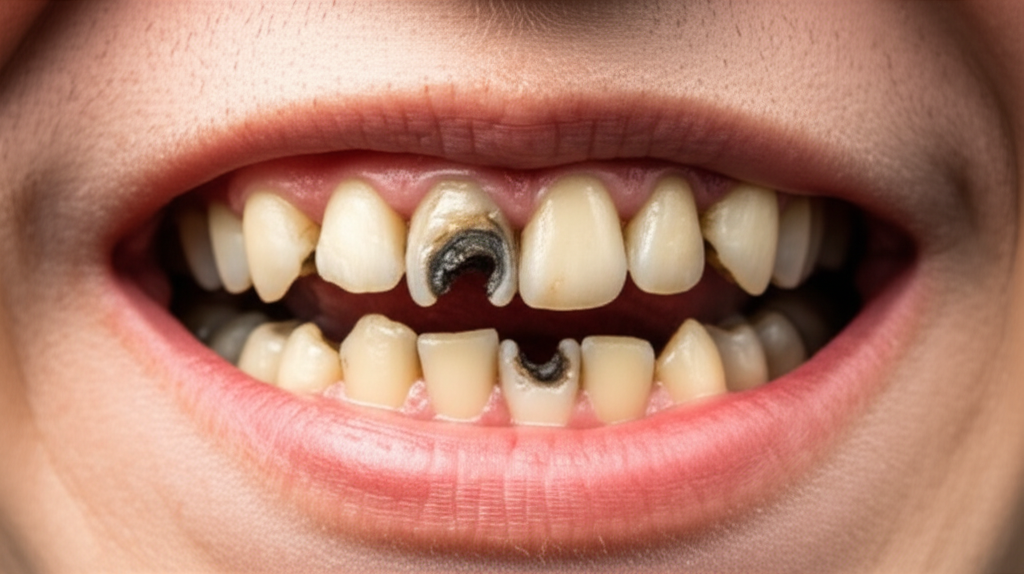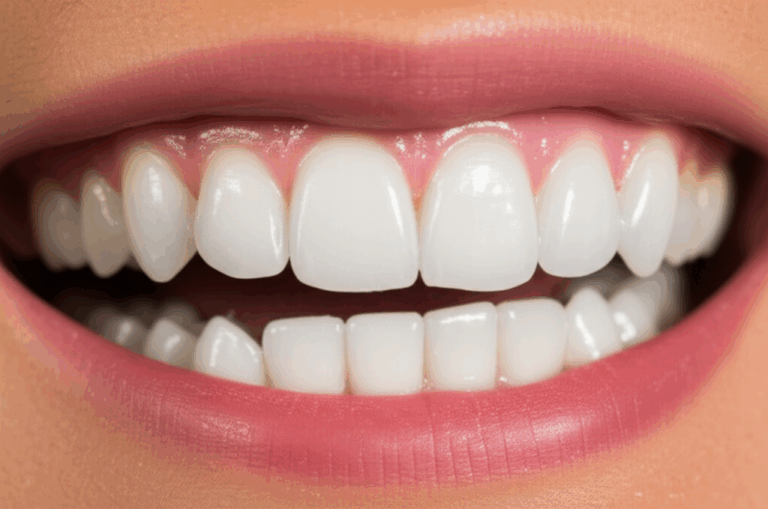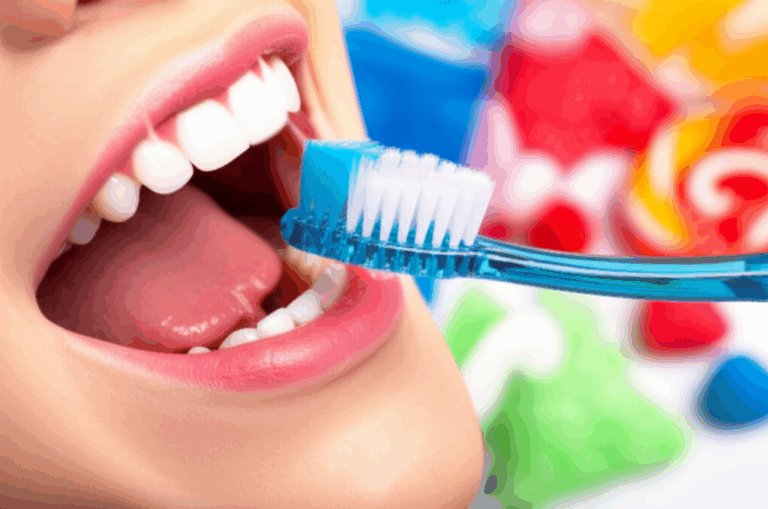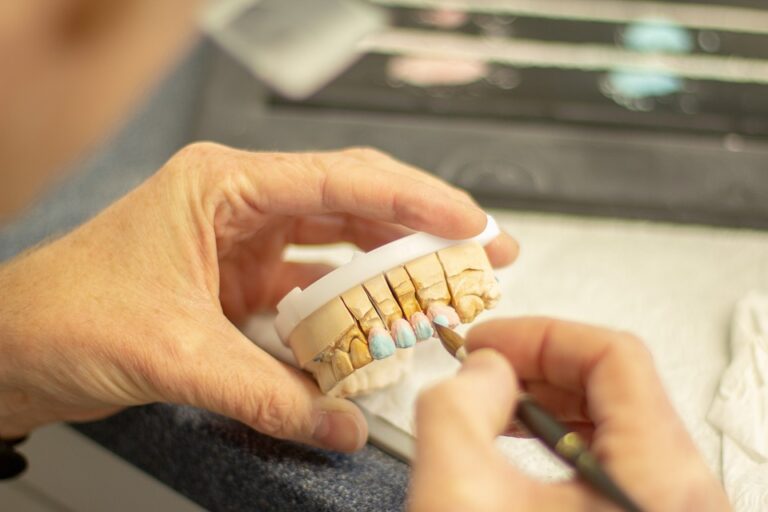
The Devastating Impact: Which Substances Cause Big Dental Problems When Abused?
You probably landed here because you’ve seen—maybe in yourself or someone you know—teeth going bad faster than you thought possible, gums shrinking, or mouth pain that just won’t go away. Maybe you’re worried a certain habit is messing up your smile and want to know for sure: Which substances, when abused, actually cause big dental problems? It’s a scary question—but an important one. The good thing? If you’re here reading, you’re already taking a big step toward understanding and, if needed, making a change.
Let’s be clear: you are NOT alone. Millions of people all over the world have watched their smiles and health quietly get ruined by things they thought they could handle. If you’ve heard words like meth mouth or have noticed how some drugs seem to “eat away” at teeth, keep reading. We’ll break down exactly which habits do the worst damage, what really happens inside your mouth, and most importantly, what you can do to start fixing things today.
Table of Contents
- The Main Question: Which Substances Are Worst for Your Teeth?
- How These Substances Destroy Your Smile
- Common Dental Problems Caused by Drug Abuse
- Why Does Substance Abuse Wreck Oral Health?
- What Are Your Treatment and Prevention Options?
- Key Takeaways for a Healthier Smile
The Main Question: Which Substances Are Worst for Your Teeth?
Let’s get straight to the point: which drugs and substances hurt your teeth and gums the most when people abuse them? While any addiction or bad habit that causes people to skip care or eat badly can hurt your mouth, a few main things are the top troublemakers for how fast and how badly they destroy things.
Here are the “bad guys” to watch out for:
1. Methamphetamine (“Meth” or “Crystal Meth”)
- Main mouth problem: “Meth mouth”—really bad cavities, falling-apart teeth, and terrible gum infections.
- How it happens: Causes really dry mouth, crazy cravings for sugary drinks, makes you grind your teeth, and leads to forgetting basic cleaning.
2. Cocaine & Crack Cocaine
- Main issues: Gum shrinkage, mouth sores, bad enamel wear, and risk of holes between the mouth and nose or roof of the mouth if used a lot.
- How: Shrinks blood flow to gums, is sour, makes you grind teeth, and causes infections.
3. Opioids (like Heroin, Fentanyl, Prescription Painkillers)
- What you’ll see: Many cavities, broken teeth, really bad gum disease.
- Why: Makes you tired, you don’t brush, dries your mouth, makes you want sweet foods.
4. Alcohol
- Dental risks: Eats away tooth covering (enamel), dries the mouth, feeds cavities, boosts the risk of mouth cancer.
- Why: Alcoholic drinks are usually sour and/or full of sugar, and they dry you out.
5. Tobacco (Smoke, Chew, Vaping)
- Known for: Bad gum disease, losing lots of teeth, mouth cancer, stubborn sores, yellow or brown stains.
- How: Slows blood to gums, slows healing, brings cancer-causing stuff into your mouth.
6. Marijuana (Cannabis)
- Problems: Ongoing dry mouth, more cavities, yeast infections in the mouth, red and puffy gums.
- How: Dry mouth with sugary snack attacks—double trouble.
7. MDMA (Ecstasy), Amphetamines, and Other Stimulants
- Known for: Teeth-grinding and jaw-clenching (called bruxism), cracked teeth, really sore jaw.
- Why: Ramps up your nerves, making you clench or grind and drying out the mouth.
8. Inhalants & Strong Chemicals
- Bad effects: Burns, sores, dead patches in the mouth.
- How: These strong chemicals burn and destroy the skin and gums inside your mouth.
#### Special mention:
- Bath salts, Krokodil, Fake Weed (Spice), Benzos (like Xanax), and even some prescription drugs that are overused can also wreck your mouth, but the above are the most common and most damaging.
> Did you know? Nearly every one of these drugs causes dry mouth, which is like turning off your mouth’s cleaning system. Without spit, your mouth is open to all sorts of problems.
How These Substances Destroy Your Smile
So, how do these drugs and chemicals mess up our teeth and gums so badly—and so fast? Good question! Well, a few different types of damage all happen at once, turning your mouth into a mess.
1. Dry Mouth: Your Body’s Lost Defense
Think of spit as the bodyguard for your mouth. When drugs take your spit away—like with meth, opioids, or marijuana—germs, acid, and food bits stick around, rotting teeth and making gums swollen. With no spit, your teeth covering gets weak and cavities come on fast.
2. Teeth Grinding or Jaw Clenching
Drugs like crack, meth, MDMA, even some ADHD meds like Adderall can supercharge your nerves, so you grind your teeth day and night. This rubs away the hard part of your teeth, makes cracks, and wrecks your jaw (imagine running a car with no tires—something’s going to break).
3. Skipping Care and Cleaning
It’s not just what the drugs do—it’s what they stop you from doing. Drugs that make you tired (like opioids) or buzzed up (like meth) make brushing and flossing just feel “too hard.”
4. Cravings for Sugar and Junk Food
Meth and marijuana especially make people snack on candy, soda, or whatever junk is around. Your mouth fills up with sugar, which brings more cavities and gum problems.
5. Direct Chemical Burning
Some drugs are straight-up poison for your mouth:
- Meth smoke is sour
- Crack cocaine burns your mouth
- Alcohol and some inhalants give you chemical burns
6. Cut-Off Blood Flow
Stimulants like cocaine shrink blood pipes in your mouth, choking the gums and slowing healing. This makes little gum cuts turn into big infections, or can kill off spots of teeth and bone.
> Real-life example: “Sarah” started using meth at 22. By 25, she’d lost most of her top teeth—not from an accident, but from dry mouth, sugary drinks, and grinding she did without even thinking. Brushing now and then just wasn’t enough.
Common Dental Problems Caused by Drug Abuse
Here’s what these “hidden” problems look like:
If you or someone you know shows any of these, it’s time to take things seriously.
1. Serious Tooth Decay (Cavities) & “Meth Mouth”
- Cavities get huge, especially at the gum line.
- Teeth might turn brown, black, look rotten or even break apart.
- “Meth mouth” is the common one, but other drugs like opioids and stimulants can do the same.
2. Really Bad Gum Disease
- Red, bleeding, swollen gums that move down from the teeth
- Bad breath that won’t go away
- Teeth loosen and move—often with little warning
3. Enamel Erosion and Cracked/Chipped Teeth
- Teeth feel thin and glassy and become extra sensitive (that “zing!” with cold drinks)
- Chips, cracks, and sometimes even pieces breaking off—especially if you grind or use sour drugs
4. Always Dry Mouth
- Sticky lips, dry tongue, mouth sores appear
- Higher risk of gums and teeth infections and cavities
5. Mouth Infections & Abscesses
- Swelling, pus, and pain near a tooth or gum
- Sometimes, the infection spreads beyond the mouth—dangerous and can be deadly
6. Losing Teeth
- Teeth fall out by themselves or need to be pulled from damage
- Makes eating and talking harder, and leads to embarrassment
7. Mouth Cancer & Odd Sores
- White or red spots that don’t go away (called leukoplakia or erythroplakia)
- Lumps, ulcers, or sores that don’t heal—especially from alcohol and tobacco
#### Fast facts:
- 96% of meth users have dental problems; over half have untreated cavities (JADA, 2005)
- Opioid users have a 3-5 times higher risk for bad gum disease than non-users
- Smokers: 2-3 times higher risk for severe gum problems, 75% of mouth cancers start from tobacco
Why Does Substance Abuse Wreck Oral Health?
Here’s the big “why.” With so many drugs and problems, it’s easy to feel lost. But there are just a few main reasons why drugs and alcohol mess up your mouth:
A. Direct Effects in Your Mouth
- Shrinking blood flow (your gums and teeth don’t heal)
- Drying you out (spit is mostly gone)
- Burns and acid attacks
- Toxic straight to your mouth (meth, crack, inhalants)
B. Bad Habits That Follow
- Not brushing your teeth (when you’re high or sleepy, who wants to floss?)
- Missing dentist visits (sometimes for years)
- Eating tons of sugar when high or afterward
C. Weak Immune System
- Your body can’t easily fight germs or heal from infection
D. Money and Shame
- People can’t pay for care, lose insurance, or avoid help because they feel guilty
E. Poor Diet
- Drugs make you less hungry or only want junk—vitamins that protect teeth and gums disappear
F. Not Noticing Problems Early
- Dental trouble starts out “quiet”—no pain at first, just bleeding gums or dry mouth, so people don’t notice until it’s bad
Think of your mouth as a town with a guard (spit) and cleanup crew (good brushing). When addiction comes, both are gone. The “bad guys” (germs) take over. Without anybody keeping order, things fall apart fast.
What Are Your Treatment and Prevention Options?
If you’re thinking, “This sounds like me (or someone I know),” don’t freak out. You can take charge of your mouth health, but it might need a team—just like with beating addiction.
Let’s break it into two parts: What can I do RIGHT NOW? and When should I get help from a pro?
What You Can Do at Home Right Now
1. Focus on Good Cleaning—Today
- Brush gently but well, twice a day with a toothpaste that has fluoride
- Floss every day to clear out gunk between teeth (think of it as a restart)
- Use a mouthwash without alcohol to avoid more dryness
- Chew sugar-free gum or suck on xylitol mints to make more spit
2. Help Your Dry Mouth
- Sip water often (always have a bottle nearby)
- Skip pop, coffee, booze, and sweet drinks
- Try spit helpers you can buy at the drugstore if you need extra help
3. Change Your Eating Habits
- Pick healthy snacks—raw veggies, cheese, or nuts are better than pop or candy
- Don’t snack all day—give your teeth a break
- Cut down on sour foods and drinks (like lemons or vinegar) if your teeth are sensitive
4. Watch for Trouble
- Bleeding while brushing/flossing isn’t normal
- Look for bad breath that won’t go away, mouth sores, loose teeth, or your teeth feeling different
When to See a Dentist (and Why)
You should get dental help as soon as you can if these pop up:
- Ongoing pain, swelling, or broken teeth
- Gums bleed a lot or are moving away from the teeth
- You spot new lumps, white or red patches, or sores that won’t heal (could be mouth cancer)
- Eating or talking hurts, or your bite feels different
- You’re worried about damage from using drugs or alcohol (even if it was in the past)
#### What the Dentist Might Do
- Checkup & Cleaning: First, you’ll get a gentle, no-shame check and a deep cleaning. No one’s judging—it’s all about stopping more damage.
- Fixing Cavities and Broken Teeth: They can fill, cap, or fix missing spots and help you chew again. You can get custom repairs from a crown and bridge lab.
- Dentures or Implants: Lost teeth? Removable denture labs can fix your look and help you eat.
- Mouth Guards: If you grind teeth, a made-for-you guard from a night guard dental lab can keep teeth safe.
- Mouth Cancer Checks: Especially if you’ve smoked or drank a lot.
#### Taking Care of Mouth and Addiction—Together
Here’s the best tip for many: get help for both addiction and dental trouble at the same time. Many dentists now work hand-in-hand with addiction helpers, so you feel less shame and get more support for both your teeth and your life.
#### For Prevention and Early Help
- Learn: Knowing how drugs hurt your mouth can help you avoid it or push others to pick better options.
- Hurt Reduction: Even if you’re not ready to quit, just brushing your teeth and drinking lots of water or choosing less sugar helps slow the damage.
- See Your Dentist Regularly: Even just two times a year is a good plan for staying healthy long-term.
Who Is This For? Are You at Risk?
Wondering if this is about you? Check these out:
- You use—or have used—meth, cocaine, heroin, ecstasy, or other stimulants: Even if it was for a little while, teeth can change fast. The sooner you get help, the better.
- You’re a social drinker or smoker, especially with bleeding gums, mouth sores, or teeth falling out: Don’t ignore it.
- You like marijuana but reach for sweets or skip brushing: Cavities can come fast.
- You grind teeth, always have dry mouth, or eat lots of sugar: Habits like these—sometimes from drugs—make everything worse.
- You’ve lost a tooth or have gums that hurt or are infected: Get checked out by a pro.
#### Not Sure? Try This:
- Look in the mirror. Do your gums look lower, teeth have brown spots near the gums, or are teeth chipped or broken? Strange patches?
- Smell your breath—even after brushing. If it still stinks, there’s probably a problem.
- Teeth or gums feel “off” or not the same? Don’t wait to act.
Sometimes, genes, health problems, or some medicines (including ones for addiction) can also create similar problems. Getting checked never hurts.
Your Healthy Takeaway: Steps for a Stronger Smile
Bottom line: bad habits and drug abuse can ruin your teeth, but you always have choices. The real trick? Start small, stay curious, and get help if you need it.
Quick Recap:
- Worst culprits: Meth, cocaine, heroin/opioids, booze, tobacco, marijuana, stimulants, and inhalants.
- Why they hurt: Dry mouth, grinding, not brushing, sugar, burned tissue, bleeding and weak gums, and poor eating.
- Signs to look for: Fast-spreading cavities, gums that bleed or shrink, missing teeth, ongoing sores or infections, and more sensitivity.
- What to do yourself: Brush, floss, drink water, eat healthy, avoid sugars and acids, and watch out for warning signs.
- See a dentist: If something hurts, is swollen, teeth are broken or lost, or you’ve used these drugs—even in the past—catch things early and get a no-blame care plan.
- Best recovery: Take care of teeth and addiction at the same time.
- Start with prevention: Even small things (like sugar-free gum or one extra toothbrushing a day) help avoid bigger problems and make life better.
What You Should Do Next:
Remember, your smile isn’t just teeth—it’s how you show confidence, enjoy life, and even stay healthy. Yes, these drugs and habits can destroy, but learning and acting can rebuild. Every little step helps, and today can be your first. You can do this.
> Medically checked by Dr. Jordan Hayes, DDS. This info isn’t a replacement for real dental or addiction care.
Need more info? See our full guides on dental diseases and ways to improve dental care and looks. Want to fix your smile? Learn how a trusted dental ceramics lab can help rebuild your teeth.
Your health. Your confidence. Your future—it all starts with your mouth.








